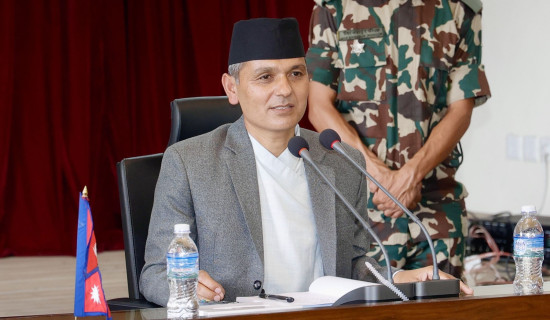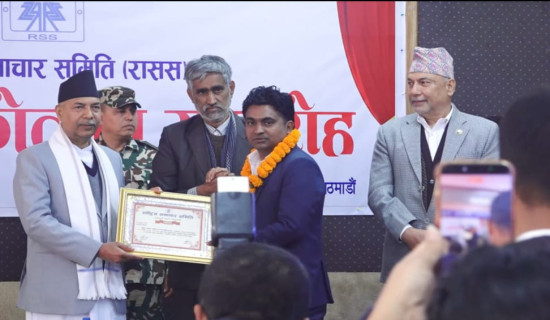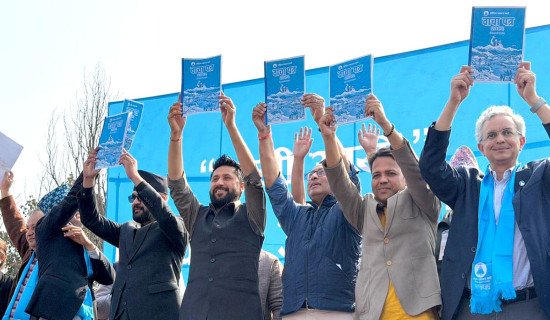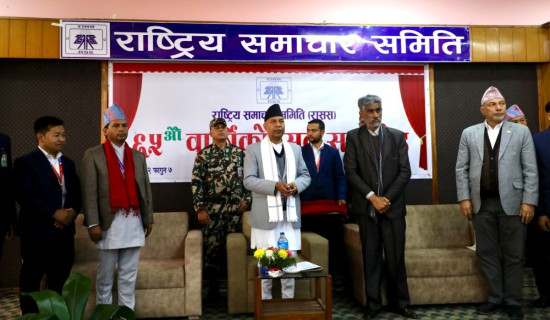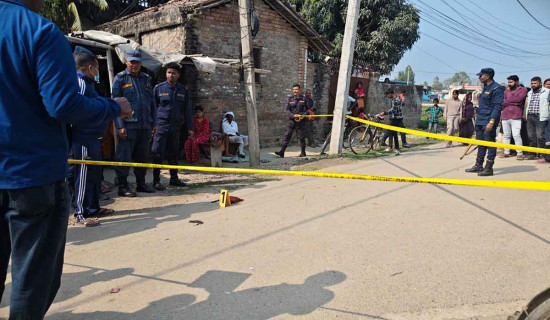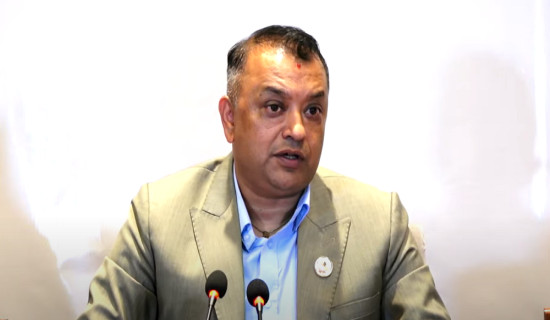- Friday, 20 February 2026
Formulating Effective Local Plans
Local government is the foundation of decentralised, federal and democratic governance. It is defined as "the nearest public elected institution of the local people, organised by and for the local people. It develops local leadership and uses local resources to serve the local people". In fact, the success of the federal system solely depends upon the achievement of the local government.
The Constitution of Nepal acknowledges the local level as the local government of the federal system of governance. The national charter allocates 22 development and public service powers to the local level under a single list and 15 state powers in the concurrent list to the local government. In addition, local levels are also free to formulate laws, plans and policies for the betterment of people with the stipulated responsibilities and delineated areas. Currently, Nepal has a total of 753 local governments which remain close to local citizens. They are known as ‘seeing, hearing and meeting governments’.
Driving force
Development is regarded as the substantial and positive change in human life. It enlarges choices of people and promotes economic freedom as well. Development indicators not only include gross domestic product (GDP) and per capita income but also embrace redistribution of wealth and enhancement of people’s happiness. Development planning is the driving force of all forms of development at the local level.
Planning is defined as "a technique, a means to an end, the end being realisation of certain pre-determined and well-defined aims and objectives". Moreover, planning is a frame in the making of major economic decisions: what and how much is to be produced, how, when and where it is to be produced, to whom it is to be allocated. The purpose of planning is achieving development through various ways. Additionally, a plan is a collection of projects and it is also a clear framework of investment to achieve the defined development goals.
A planning process has its own cycle that starts from the collection of disaggregate data to the development of evidence-based planning. After collection of adequate information, the central planning authority develops and presents the plan proposal before a forum with planning vision, mission, objectives, targets, priorities, strategies, financial resources and process of monitoring and evaluation. The forum consists of people's representatives, experts, bureaucrats, businessmen and other stakeholders to discuss and finalise the plan. After the consent of the authority, the plan goes to an implementation phase. The annual public budget is catalytic to implement the plan by coordinating with stakeholders.
The main actor requires leading and shouldering the whole development process. Local governments are the main actors of local development. Local planning sets the rules and regulations for development activities to achieve the objectives of local development. The constitution has entrusted the local government institutions with powers and responsibilities of issuing general directives, controlling and regulating their administration. To fulfill the aspirations of people, local levels have to formulate a detailed plan to provide public services and build up infrastructures. The Local Government Operation Act, 2074 prescribes a planning process for local governments.
Local governments may have some shortcomings while formulating plans and executing them. The reason for this is that the local governments have set up a planning section which focuses only on the implementation part of planning. They rarely have disaggregate data of the municipality or rural municipality. This hampers the formulation of an evidence-based plan. Besides, the local government runs without vision and mission of development goals. It also often lacks knowledge, skills and process of planning. There is a saying: if you fail to plan, you are planning to fail. Furthermore, the local representatives seem to be acting as if they knew everything to operate the local governance as soon as they get elected. So, the local governments need to bear in mind some key factors of successful planning as they begin to work.
Firstly, they are recommended to follow due planning processes while formulating a comprehensive plan with vision, mission, objectives, development priority, targets, strategies and monitoring and evaluation. Secondly, the local elected representatives are required to take part in different trainings and seminars on planning processes. Thirdly, there should be a "Mobile Policy Advisory Team" in place at the provincial level to support and enable local elected representatives to formulate and execute policy, plan and budget as and when necessary. This team can be an alternative to the creation of a local policy commission or local planning commission in every local level. Fourthly, they need to establish a local database with disaggregate data of different sectors or areas.
Transparency
Fifthly, the concerned local government must have a clear vision based on the constitution, federal and provincial periodic plan, manifestoes of the ruling political party, changing demand of people and technological advancement. Sixthly, the local levels must ensure transparency and stakeholders’ participation in formulating the plan and executing it. They need to enable and motivate the local administration to perform their duty effectively and efficiently.
Likewise, they should to make sure that financial and human resources are support the planning and budgeting process. They are also suggested identifying areas of participation and partnership for local development with the private sector, cooperatives, and communities. It is also necessary to ensure coordination, cooperation and co-working environment among the federal, provincial and local governments.
In a nutshell, the planning process is solely a technical subject. So, the local elected representatives need to acquire knowledge and ideas about political, economic, social, administrative and technological dimensions so that they can carry out their respective responsibilities in the best possible way.
(Koirala is a retired Joint Secretary, Government of Nepal. laxmibilas@gmail.com)











